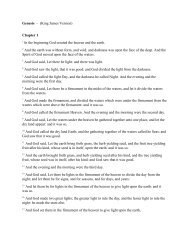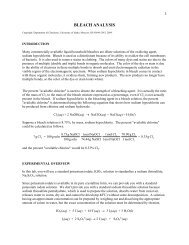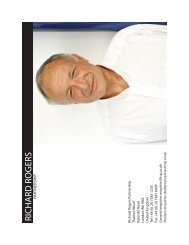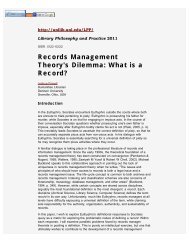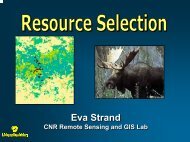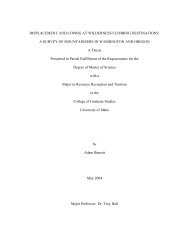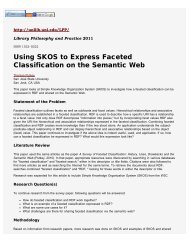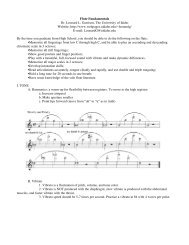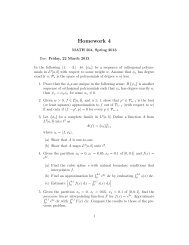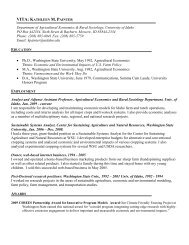Gandhi, Ahimsa, and the Self - University of Idaho
Gandhi, Ahimsa, and the Self - University of Idaho
Gandhi, Ahimsa, and the Self - University of Idaho
You also want an ePaper? Increase the reach of your titles
YUMPU automatically turns print PDFs into web optimized ePapers that Google loves.
corresponding modes <strong>of</strong> life." 46 But if <strong>G<strong>and</strong>hi</strong> means something more rigid--something like <strong>the</strong> tiger cub<br />
locked into his role--<strong>the</strong>n <strong>G<strong>and</strong>hi</strong>'s defense <strong>of</strong> varna as true to <strong>the</strong> "laws <strong>of</strong> Nature" is more problema-<br />
tic. 47 The following passage is typical <strong>of</strong> this more conservative view:<br />
Some people are born to teach <strong>and</strong> some to defend, <strong>and</strong> some to engage in trade <strong>and</strong><br />
agriculture <strong>and</strong> some to manual labor, so much so that <strong>the</strong>se occupations become<br />
hereditary. The Law <strong>of</strong> Varna is nothing but <strong>the</strong> Law <strong>of</strong> Conservation <strong>of</strong> Energy. Why<br />
should my son not be a scavenger if I am one? 48<br />
<strong>G<strong>and</strong>hi</strong>'s view here is completely consonant with <strong>the</strong> hierarchical body analogy, but it also here where<br />
most <strong>of</strong> us want to break with it. The philosophers at Pondicherry, I was told, sometimes wash dishes<br />
to clear <strong>the</strong>ir heads. In <strong>the</strong> human body, however, <strong>the</strong> liver or o<strong>the</strong>r organs have no such liberty or<br />
flexibility--nor presumably does <strong>G<strong>and</strong>hi</strong>'s scavenger who might want to become a philosopher.<br />
The more Roy expounds on <strong>the</strong> ideal relationship <strong>of</strong> <strong>the</strong> self <strong>and</strong> society, <strong>the</strong> more it becomes<br />
clear that his preference, Advaita Vedanta, is not <strong>the</strong> correct ontological base. Shankara's philosophy<br />
does not allow us, as Roy rightly proposes, to extend "individuality in a way that all such extensions,<br />
while preserving <strong>the</strong> uniqueness, autonomy <strong>and</strong> reality <strong>of</strong> individuality, converge in a way that produces<br />
a viable social order subserving <strong>the</strong> good <strong>of</strong> all." 49 After such a cogent description <strong>of</strong> plural but<br />
relational selves, it is disheartening to find Roy lapsing back into absolute monism:<br />
<strong>the</strong> prior existence <strong>of</strong> a centre <strong>and</strong> all particulars are thought to be its manifestation.<br />
This centre manifests in <strong>the</strong> particulars which, in turn, are seen to be reflecting in it. . . .<br />
And it is this commonality that constitutes <strong>the</strong> ground for <strong>the</strong> self to treat o<strong>the</strong>rs as dis-<br />
tinct but not different. It is this shareability in a commonality that constitutes <strong>the</strong><br />
foundation <strong>of</strong> sociality. 50



